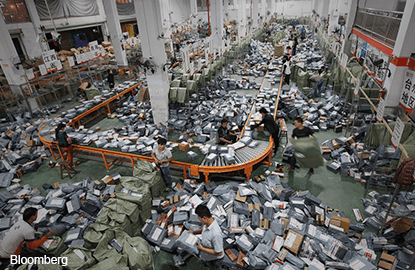
This article first appeared in The Edge Financial Daily, on November 12, 2015.
BEIJING: Shoppers spent around US$9 billion (RM39.33 billion) in the first 12 hours of China’s “Singles Day” sale yesterday, e-commerce giant Alibaba said, in the world’s biggest online shopping day.
Total gross merchandise volume, a measure of sales, matched the 2014 US dollar total of US$9.3 billion just after 12.30pm (0430 GMT), after the promotion began at midnight. “The 2015 sale has eclipsed last year’s final results in a little over half the time,” it said.
In an earlier release Alibaba’s chief executive officer Daniel Zhang said: “The whole world will witness the power of Chinese consumption this Nov 11.”
“Singles Day” is not a traditional Chinese festival, but Alibaba has been pushing Nov 11 — 11/11 being a date heavy on ones — since 2009 as it looks to tap an expanding army of Internet shoppers in China, which has the world’s biggest online population of 668 million.
At first it was marketed as an “anti-Valentine’s Day”, featuring hefty discounts to lure the country’s singletons and price-sensitive buyers. With sales hitting new highs year after year, “Singles Day” has become a lucrative business opportunity embraced by all online retailers in China, with competition between them turning increasingly fierce.
The event has received vocal support from the government at a time when China’s economic expansion is slowing and Beijing is trying to transform the growth model into a more sustainable one driven by consumption.
Premier Li Keqiang’s office phoned Alibaba chairman Jack Ma hours ahead of the promotion kicking off, “congratulating and encouraging the creation and achievement of the 11.11 event”, said a posting on a social media account of Tmall, the group’s business-to-consumer arm.
Chinese Internet users showed off their acquisitions yesterday — with many lamenting that they had spent far too much. “I can only afford to eat dirt for the next half year,” said a user on the Twitter-like Sina Weibo, with an attached screen grab of a Taobao app showing she had bought 42 items.
But some consumers also expressed concerns about fake products. “Good luck. Hope you guys will not get phoney products or things that turn out to be useless,” said a Weibo user.
Headquartered in the eastern city of Hangzhou, Alibaba does not sell products directly but acts as an electronic middleman, operating China’s most popular consumer-to-consumer platform, Taobao, which is estimated to hold more than 90% of the market. — AFP